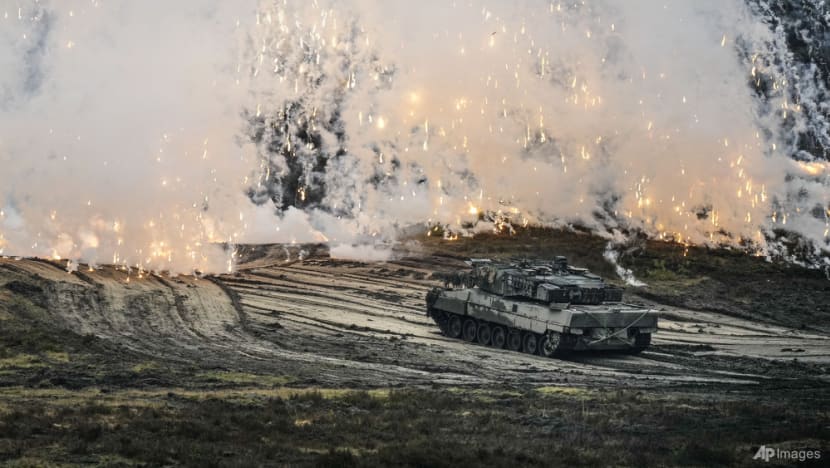Deteriorating global security situation likely to herald dangerous decade: Report
The next decade may be characterised by the “brazen application by some of military power to pursue claims, evoking a ‘might is right’ approach”, the report said.


This audio is generated by an AI tool.
From Europe to Asia and beyond, the security environment is deteriorating, with the current situation heralding what is likely to be a more dangerous decade, according to an annual assessment of global military capabilities and defence economics.
The authoritative IISS Military Balance report by London-based think-tank International Institute for Strategic Studies (IISS) cited mounting conflicts such as the Israel-Hamas war and Russia’s continued aggression against Ukraine.
The next decade may be characterised by the “brazen application by some of military power to pursue claims, evoking a ‘might is right’ approach”, said the report, which was released on Tuesday (Feb 13).
The result has been an uptick in defence outlays, with global defence spending growing by 9 per cent to reach a record US$2.2 trillion in 2023, it said.
Together, the spending by North Atlantic Treaty Organization (NATO) member countries, China, Russia and India accounts for more than 70 per cent of global military spending.
Such spending is poised to rise even further this year.
CHANGES IN DEFENCE STRATEGY IN ASIA
In Europe, Russia’s invasion of Ukraine has spurred European countries to boost defence spending. NATO member countries – majority of which are European – excluding the United States now spend a combined 32 per cent more than they did when Russia invaded Crimea in 2014.
As the West ramps up defence spending, so are China and Russia, who now dedicate more than 30 per cent of government outlays to total military expenditure.
“Moscow’s military actions have amplified concerns in other parts of the world, particularly the Indo-Pacific, that a militarily powerful neighbour may try to exert its will over others,” the report added.
In Asia, this has meant many governments have also increased their defence budgets in 2023, set out major arms procurement plans or pursued enhanced security relations with allies and partners.
Among them are Japan and South Korea, who are seeking closer defence ties with each other, the report noted.
Another example is the Philippines, which has agreed to give the US additional basing access, while Japan and Australia are working together more on defence matters.
Taiwan, on its part, has approved a record-high defence budget bill of more than $19.1 billion in the face of heightened tensions with China. Most recently, Taiwan, which China claims as its own territory, has complained about Chinese balloons flying across the island, saying they are a threat to aviation safety and an attempt at psychological warfare.
BEIJING, NORTH KOREA INCREASE CAPABILITIES
Beijing has shown both signs of increased security assertiveness and sustained military modernisation even as it purged parts of the People’s Liberation Army, including its Defence Minister, in 2023.
China's third and most capable aircraft carrier, the Fujian, is nearing sea trials, while its navy has exercised closer to Guam and with Russian vessels, near the coast of Alaska.
This has prompted the US and Canada to adapt, with the US turning a facility in Alaska into its first deep-water Arctic port, where naval vessels can dock.
Over on the Korean Peninsula, North Korea’s missile tests have spurred an array of defence modernisation efforts in South Korea.
The IISS report also found that Asia is becoming a hotbed for undersea warfare development, with China, Australia and the two Koreas pursuing major upgrades of their submarine capacities.
Beijing, for instance, is advancing its conventional submarine programme that may produce new stealth capabilities.
Last year, North Korea launched what it described as a tactical nuclear attack submarine.
The report also said that some countries’ armed forces are reviving interest in older equipment, while also embracing new technology like hypersonic glide vehicles and cruise missiles, or direct attack munitions.
IISS also said that nuclear weapons are "very much back on the agenda", with China adding missile silos and the US modernising warheads and delivery systems.


















